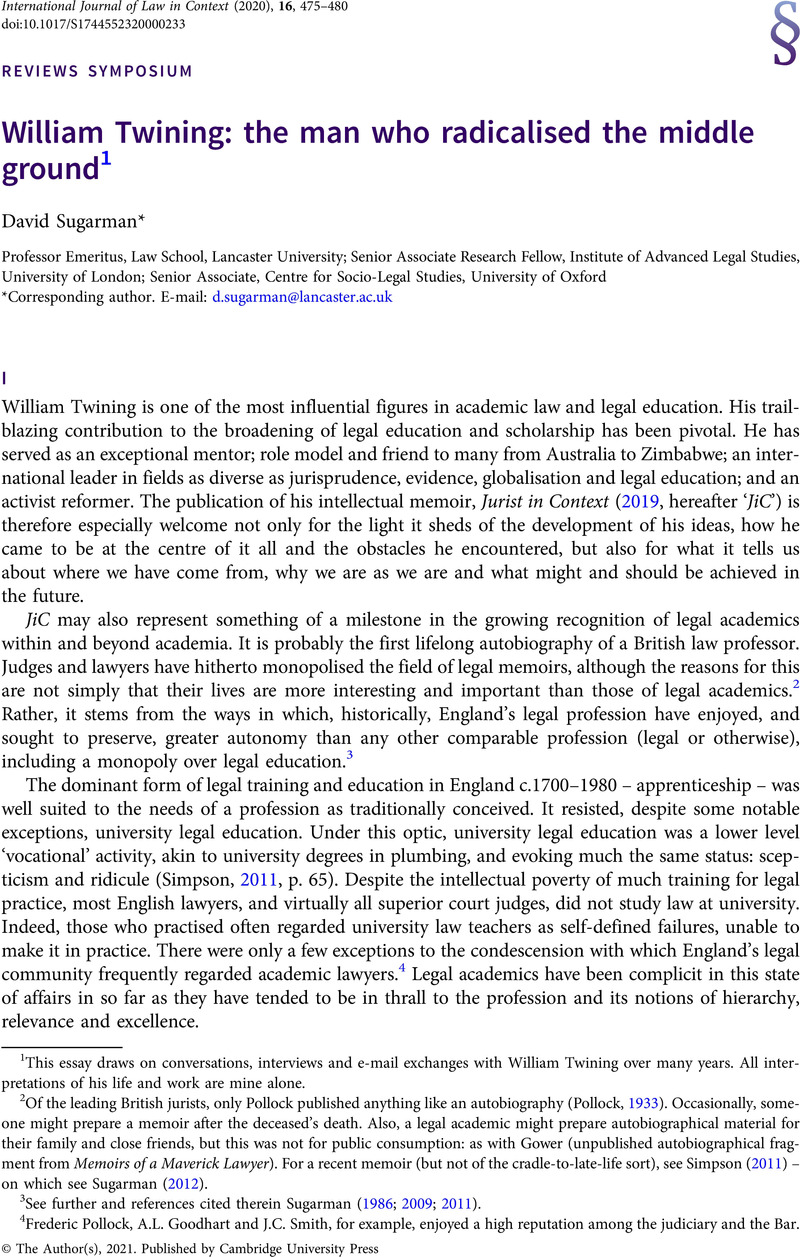Crossref Citations
This article has been cited by the following publications. This list is generated based on data provided by Crossref.
Flood, John
2022.
Traditions, symbols, and the challenges of researching the legal profession: the case of the cab rank rule and the Bar’s responses.
International Journal of the Legal Profession,
Vol. 29,
Issue. 1,
p.
3.



